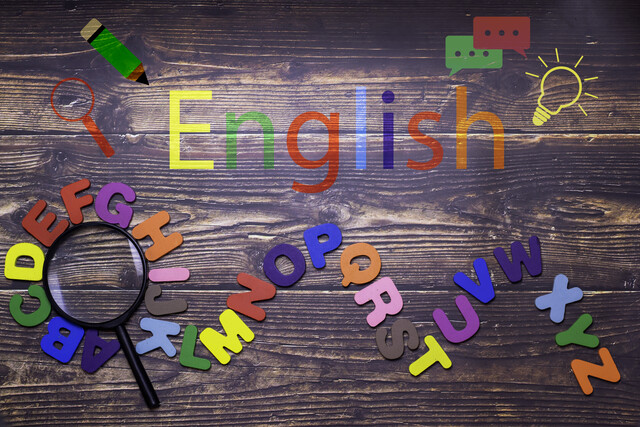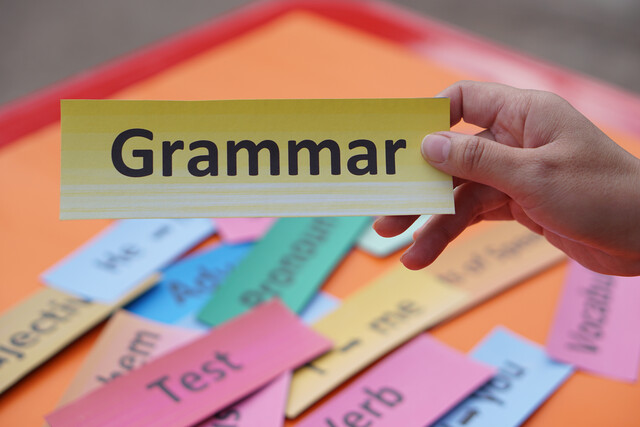Online Class: Teaching Grammar to ESL Students

no certificate
with CEU Certificate*
-
20Lessons
-
26Exams &
Assignments -
778Students
have taken this course -
8Hours
average time -
0.8CEUs
Course Description
Venturing into the world of teaching without proper training is akin to embarking on a voyage without a compass. In today's globalized age, English stands tall as the lingua franca, bridging continents, cultures, and businesses. As international corporations pivot to English-centric operations and as immigrants seek integration into English-speaking realms, the language becomes an indispensable tool for success and assimilation.
However, imparting the intricacies of English to non-native speakers is no ordinary feat. Teaching English as a Second Language (ESL) demands a distinct pedagogical approach, blending the art and science of education. While being a native English speaker is an advantage, it doesn't automatically equip one with the prowess to teach ESL effectively. It's a misconception to believe that passion alone suffices. Mastery of ESL teaching techniques, especially the nuances of teaching grammar, is paramount.
This course offers a deep dive into the methodologies, strategies, and pedagogical secrets that form the foundation of effective ESL instruction. We shine a spotlight on the intricacies of grammar, unraveling its complexities, and offering dynamic classroom techniques that resonate with students across varied proficiency levels. While our primary lens is on beginner and intermediate learners, the strategies presented transcend levels, ensuring versatility in your teaching toolkit.
Whether you're a seasoned educator branching into ESL or a passionate individual eager to make a difference, this course promises to transform you from a mere native speaker to a maestro in ESL instruction. Equip yourself with the tools, insights, and confidence that will not only enrich your teaching journey but also light the path of linguistic discovery for your students. Dive in and prepare to be the bridge that connects learners to the expansive world of English, enabling them to navigate it with flair and finesse. Your odyssey to becoming an ESL virtuoso starts here!
- Completely Online
- Self-Paced
- Printable Lessons
- Full HD Video

- 6 Months to Complete
- 24/7 Availability
- Start Anytime
- PC & Mac Compatible
- Android & iOS Friendly
- Accredited CEUs

Course Lessons
Lesson 1. From Foundation to Classroom: Navigating ESL Teaching with PPP Methodology
Mastering ESL teaching necessitates more than knowing English; it requires strategic application of the PPP methodology to meet classroom goals efficiently. Lessons should have concise objectives with manageable vocabulary and grammar focus—vital in guiding students from presentation through practice to confident production.Lesson 2. Innovative Group and Pair Work Tactics for ESL Instructors
Classroom techniques and activities such as TPR, open pairs, and boardwork are crucial in sustaining ESL students' interest and promoting interactive language practice. Adjusting class pace and incorporating surprise elements prevent the learning process from becoming monotonous, encouraging student enthusiasm and engagement.Lesson 3. From 'I am' to 'I'm': A Comprehensive Guide to Contractions
This lesson focuses on practical classroom techniques, guiding educators on how to teach the verb 'to be' in the simple present, while addressing common student errors through repetitive loud practice and visualization techniques for contractions. Emphasizing context-driven eliciting and strategic points of view illustration, it prepares teachers with adaptable lesson plans that suit both textbook and non-textbook environments.Lesson 4. Exploring Future Intentions: Unraveling 'Will' and 'Going To'
Students learn the intricacies of future tense usage by distinguishing between 'will' for immediate decisions and 'going to' for plans and intentions. The structured lesson plan incorporates interactive exercises to solidify students' understanding, enabling nuanced communication in English.Lesson 5. Navigating Conditional Sentences in ESL Learning
Exploring zero and first conditionals, this lesson emphasizes their roles in different contexts, helping ESL students distinguish between fixed truths and future possibilities. With exercises from matching to dialogues, students build foundational skills in conditionals, enabling them to progress in language proficiency.Lesson 6. Mastering the Elusive 'A,' 'An,' and 'The': Overcoming ESL Challenges
Students face significant challenges in learning English articles due to the absence of similar constructs in some languages, leading to common errors and 'broken' English despite effective communication. Teachers play a crucial role in helping students refine their language skills, though the learning process can be gradual and complex.Lesson 7. Present Simple & Frequency Adverbs: A Lesson to Engage and Excel
The exploration of frequency adverbs provides an interactive platform for students to discuss personal routines using the present simple. Instructional success relies on the teacher's ability to evaluate class comprehension and dynamically adjust the curriculum's pace.Lesson 8. Phrasal Verbs Simplified
Students often struggle with phrasal verbs, which combine a verb and a particle to create new meanings, sometimes dramatically different from their components. Engaging activities like charades and Total Physical Response can make learning these formidable grammar pieces more enjoyable and effective.Lesson 9. Learning Prepositions through Interactive Play
Realia bridges the learning gap by offering concrete examples, making abstract grammar concepts like prepositions of place more relatable, especially through dynamic lesson plans like the Deserted Island scenario.Lesson 10. Second Conditional Insights
The second conditional, such as in 'If I won a million dollars, I would buy a house,' uses past tense forms for future hypothetical situations, a common stumbling block for learners. To effectively teach it, the lesson recommends starting with exercises that emphasize meaning before introducing engaging discussions.Lesson 11. Teaching Present Continuous Made Simple
Balancing lessons on the present simple and present continuous provides a comprehensive understanding for students, which can prevent future grammatical errors. Activities focus on real-life examples and encourage student interaction to create a dynamic learning environment.Lesson 12. Textbook Dynamics: Enhancing Classroom Success
A good textbook should cater to the practical needs of your class, including PPP-ready lessons, audio exercises with transcripts, and suitable homework assignments, while addressing differences between UK and U.S. English. Pay attention to imagery quality and ensure that exercises support the well-rounded growth of reading, writing, speaking, and listening skills.Lesson 13. 'To Living' Explained: Teaching Participle Clauses in Context
Focusing on sentence construction around topics like 'The upside to living in New York,' students delve into participle clauses and practice using pros and cons vocabulary. Contextual practice sessions involving dialogues and personalized sentence creation help solidify their grasp on the grammar.Lesson 14. Mastering Comparisons: An Engaging ESL Journey
Teaching comparisons offers dynamic learning through real-life contexts like photos and familiar settings, with a focus on ESL grammar rules. The lesson plan combines comparatives and superlatives, enhancing language skills via structured activities and vocabulary exercises.Lesson 15. Have or Have Got?
Exploring 'to have' versus 'have got' offers an educational insight into their specific uses, with 'have got' typically employed in British English for indicating possession. An effective lesson features vocabulary introduction, interactive exercises, role-playing, and imaginative games to solidify understanding.Lesson 16. Talk Like a Cowboy: Engaging Techniques for English Pronunciation
Students with strong grammar skills may still struggle with pronunciation, impacting their comprehensibility. This lesson explores techniques like modeling, mnemonic devices, and creative methods to aid pronunciation improvement effectively.Lesson 17. Exploring Modals: A Journey through Usage and Activities
The lesson addresses the challenges of teaching modals such as can, could, may, and must by highlighting their multiple meanings and uses in different situations and the necessity of combining them in lessons. Pronunciation hurdles like the silent 'L' in could, should, and would are tackled through rhyming techniques, aiding students’ grasp of these tricky sounds.Lesson 18. Unlocking the Mystery of the Present Perfect: A Teacher's Guide
By introducing learners to the present perfect, teachers help bridge past experiences with present realities, guiding students using tools like timelines and context-rich examples. Classroom activities focus on building confidence in using the tense correctly, avoiding common pitfalls such as specifying exact times when using the present perfect.Lesson 19. Mastering the Past: Regular and Irregular Verb Guide
The provided lesson plan guides students through using the past simple tense with regular and irregular verbs while emphasizing the correct pronunciation of '-ed' endings. Practice exercises and dialogue activities reinforce understanding through repetition and application.Lesson 20. Teaching Grammar Using Songs
Songs in lessons are versatile tools for teaching grammar concepts, especially when lyrics align with lesson objectives. Ensuring clear pronunciation and using comprehension checks can enhance the learning experience.
Learning Outcomes
- Define and apply the PPP methodology to structure an ESL lesson effectively, incorporating presentation, practice, and production phases.
- Elicit and correct student responses to promote engagement and understanding of new vocabulary and grammar within an ESL classroom setting.
- Apply Total Physical Response (TPR) techniques in ESL classrooms to enhance language retention by incorporating physical movement into lesson activities.
- Demonstrate the ability to implement effective classroom grouping techniques by organizing students into random groups or pairs using counting methods.
- Apply techniques for teaching contractions and identify different points of view in declarative, negative, and interrogative sentences.
- Demonstrate the use of the verb 'to be' in present simple sentences through oral practice and written exercises.
- Demonstrate the correct usage of 'will' and 'going to' in conversation by engaging in role-play exercises.
- Identify the contextual differences between 'will' and 'going to' when discussing future intentions or decisions in written and spoken scenarios.
- Define the differences between zero and first conditional sentences through examples and explanations.
- Demonstrate the ability to construct sentences using zero and first conditionals accurately in both written and verbal exercises.
- Demonstrate the ability to use articles correctly when discussing daily activities and specific items in conversations.
- Recognize and accurately select the correct article ('a,' 'an,' 'the') in various sentences.
- Define how to use adverbs of frequency in sentences by identifying their correct placement within present simple statements and questions.
- Demonstrate mastery of lesson content at levels of 70% or higher.
Additional Course Information

- Document Your Lifelong Learning Achievements
- Earn an Official Certificate Documenting Course Hours and CEUs
- Verify Your Certificate with a Unique Serial Number Online
- View and Share Your Certificate Online or Download/Print as PDF
- Display Your Certificate on Your Resume and Promote Your Achievements Using Social Media

Choose Your Subscription Plan
No Certificate / No CEUs
This course only
| Includes certificate | X |
| Includes CEUs | X |
| Self-paced |

|
| Instructor support |

|
| Time to complete | 6 months |
| No. of courses | 1 course |
Certificate & CEUs
This course only
| Includes certificate |

|
| Includes CEUs |

|
| Self-paced |

|
| Instructor support |

|
| Time to complete | 6 months |
| No. of courses | 1 course |
Certificates & CEUs
Includes all 600+ courses
| Includes certificate |

|
| Includes CEUs |

|
| Self-paced |

|
| Instructor support |

|
| Time to complete | 12 Months |
| No. of courses | 600+ |
Certificates & CEUs
Includes all 600+ courses
| Includes certificate |

|
| Includes CEUs |

|
| Self-paced |

|
| Instructor support |

|
| Time to complete | 24 Months |
| No. of courses | 600+ |
Related Courses
-
 17 hours
1.7 CEUs
ESL Basic Grammar and Writing
+ More Info
17 hours
1.7 CEUs
ESL Basic Grammar and Writing
+ More Info
-
 72 hours
7.2 CEUs
Writing Help Course Bundle
+ More Info
72 hours
7.2 CEUs
Writing Help Course Bundle
+ More Info
-
 7 hours
0.7 CEUs
Basic English Speaking Skills
+ More Info
7 hours
0.7 CEUs
Basic English Speaking Skills
+ More Info
-
 14 hours
1.4 CEUs
Journalism 101
+ More Info
14 hours
1.4 CEUs
Journalism 101
+ More Info
-
 11 hours
1.1 CEUs
Journaling and Memoir Writing
+ More Info
11 hours
1.1 CEUs
Journaling and Memoir Writing
+ More Info
-
 12 hours
1.2 CEUs
ESL Grammar Skills Level 2
+ More Info
12 hours
1.2 CEUs
ESL Grammar Skills Level 2
+ More Info
-
 6 hours
0.6 CEUs
ESL Basic Grammar
+ More Info
6 hours
0.6 CEUs
ESL Basic Grammar
+ More Info
-
 12 hours
1.2 CEUs
How to Write Case Studies
+ More Info
12 hours
1.2 CEUs
How to Write Case Studies
+ More Info
-
 9 hours
0.9 CEUs
ESL Grammar Skills Level 4
+ More Info
9 hours
0.9 CEUs
ESL Grammar Skills Level 4
+ More Info
-
 11 hours
1.1 CEUs
How to Write Effective Policies and Procedures
+ More Info
11 hours
1.1 CEUs
How to Write Effective Policies and Procedures
+ More Info
-
 11 hours
1.1 CEUs
Writing Effective Emails in the Workplace
+ More Info
11 hours
1.1 CEUs
Writing Effective Emails in the Workplace
+ More Info
-
 14 hours
1.4 CEUs
Report Writing 101
+ More Info
14 hours
1.4 CEUs
Report Writing 101
+ More Info
-
 11 hours
1.1 CEUs
ESL Basic Writing Skills
+ More Info
11 hours
1.1 CEUs
ESL Basic Writing Skills
+ More Info
-
 12 hours
1.2 CEUs
ESL Grammar Skills Level 1
+ More Info
12 hours
1.2 CEUs
ESL Grammar Skills Level 1
+ More Info
-
 10 hours
1.0 CEUs
ESL Grammar Skills Level 3
+ More Info
10 hours
1.0 CEUs
ESL Grammar Skills Level 3
+ More Info
-
 9 hours
0.9 CEUs
ESL Grammar Skills Level 5
+ More Info
9 hours
0.9 CEUs
ESL Grammar Skills Level 5
+ More Info





